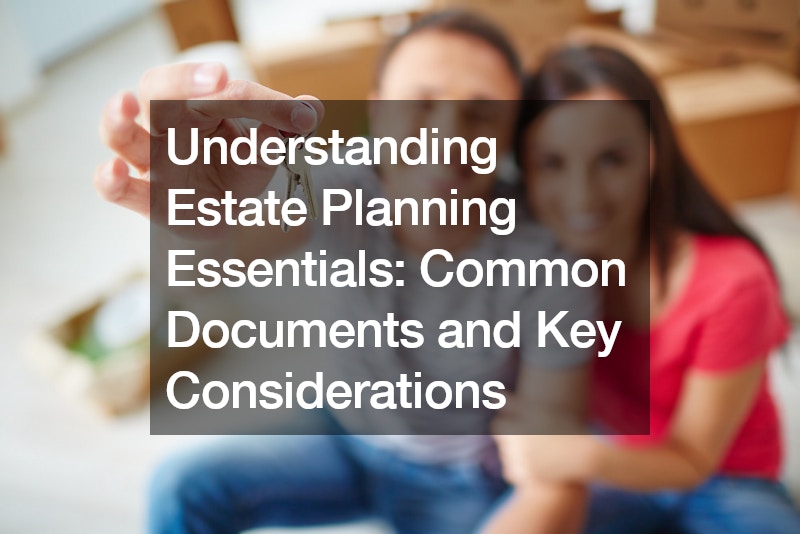

Estate planning is a vital process that involves more than just distributing assets after death;it encompasses preparing for unforeseen events like incapacity and ensuring one’s wishes are honored regarding financial and healthcare decisions. This article delves into the essential documents of estate planning and key considerations individuals should consider.
Common Documents in Estate Planning Living Trust: Central to estate planning, a living trust outlines how an individual’s assets should be managed and distributed during their lifetime and after death. One of its primary benefits is bypassing probate, a potentially costly and time-consuming legal process.
By establishing a living trust, individuals can ensure their assets are transferred privately and efficiently to chosen beneficiaries.
Will (or Pour-Over Will): A will is essential for detailing how assets should be distributed upon death. It allows individuals to specify beneficiaries for specific assets and appoint an executor to oversee the distribution process. A pour-over will complement a living trust by transferring any assets not included in the trust to it after death.
Financial Power of Attorney: This document grants a trusted individual the authority to manage financial matters on behalf of the estate planner if they become incapacitated. It includes bill payment, investment management, and real estate transactions. Having a financial power of attorney ensures continuity in financial management without the need for court intervention.
Medical Directive: Also known as an advance healthcare directive or medical power of attorney, this document specifies an individual’s preferences for medical treatment and appoints someone to make healthcare decisions if they cannot communicate. It ensures that healthcare choices align with their wishes during times of incapacity.
Key Considerations in Estate Planning Tax and Fee Minimization: Effective estate planning strategies aim to minimize estate taxes and avoid unnecessary probate costs and legal fees. Trust and gifting strategies can help reduce tax liabilities and ensure more assets are passed on to beneficiaries.
Guardianship for Dependents: Estate planning allows parents to designate guardians for minor children in the event of their incapacity or death. This ensures children are cared for by chosen individuals rather than determined by the court, providing peace of mind for parents.
Legacy and Charitable Giving: Through estate planning, individuals can leave a lasting legacy by supporting causes and organizations important to them. Charitable trusts or direct bequests enable individuals to continue their philanthropic endeavors and support community initiatives.
Regular Review and Updates: Estate plans should be periodically reviewed and updated to reflect changes in personal circumstances, tax laws, and beneficiary preferences. Life events such as marriage, divorce, or significant financial changes may necessitate adjustments to ensure the plan remains current and effective.
Estate planning is a proactive approach to managing one’s affairs, ensuring financial security, and preserving family harmony. By understanding the essential documents and considerations involved, individuals can craft a comprehensive estate plan that protects their interests and fulfills their wishes both now and in the future.
.
